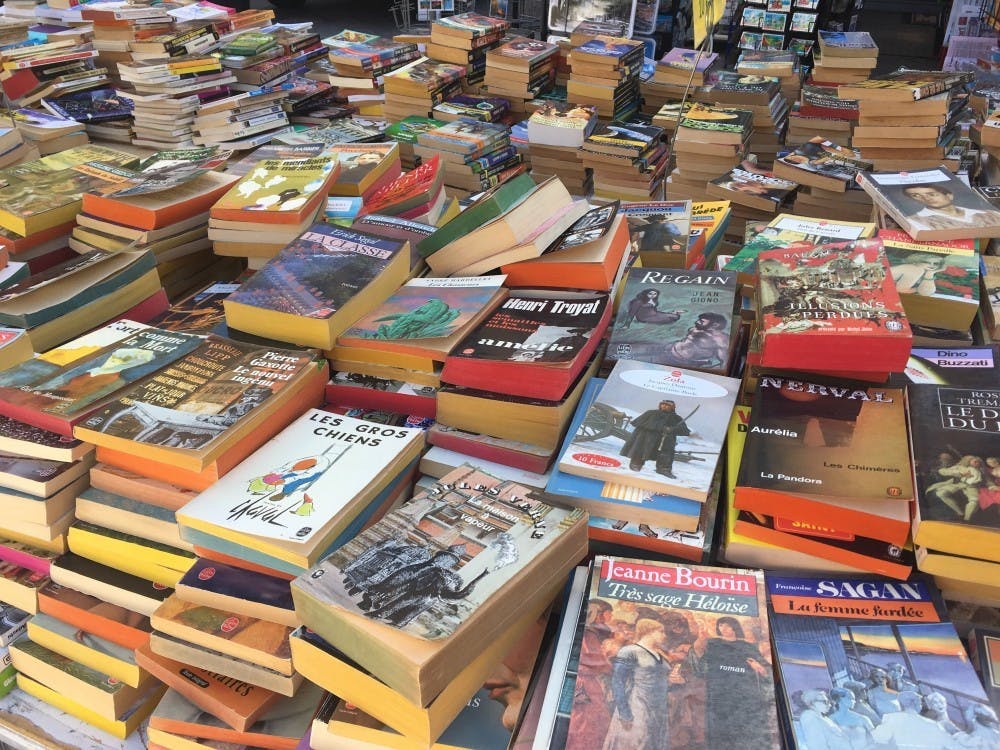Schools, community centers and libraries across the country are celebrating Read Across America Day on Monday, a holiday created by the National Education Association in 1997 to encourage children and young adults to read. The date coincides each year with Dr. Seuss' birthday.
Reading has always been an important part of my life. Some of my fondest childhood memories are of spending summer afternoons completing the Monroe County Public Library’s summer reading challenge and taking advantage of every single minute of special reading days in elementary school to get further into a good book.
What drove my enthusiasm for reading was not only my love for books, but also the relative ease at which I could visit a library or bookstore.
Amid bookstore closures and yearly threats to federal funding for libraries, however, simply encouraging people to read is not enough. We must also dedicate ourselves to supporting the continued existence of public libraries and local bookstores by spending our money at bookstores, using library services and voting for candidates who support funding for public libraries.
Unfortunately, many children across America don’t have easy access to books. In 2019, 9% of public and private schools ranging from kindergarten to high school did not have a school library, according to the American Library Association. Only 61% had full-time librarians.
Likewise, public libraries have been under attack in recent years. As part of his 2021 fiscal year budget, President Donald Trump is seeking to eliminate virtually all federal funding for libraries for the fourth straight year. Fortunately, none of the previous attempts have been approved by Congress.
Bookstore sales, meanwhile, have been decreasing over the last few years. Retail sales decreased 7.6% from December 2018 to December 2019. The popularization of e-books, along with the rise of Amazon and other online retailers, has had a major impact on the industry.
Bloomington has seen the decline in bookstores up close. The city’s Borders location closed in 2011, and Bloomington’s Barnes and Noble location closed last year. Howard’s Bookstore and Boxcar Books, two local bookstores, shut their doors by 2017, too.
With the disappearance of these stores, Bloomington residents have not only lost options for purchasing books, but they're also deprived of physical spaces for exploring new books and expanding their love of reading.
Luckily, there is still time to reverse the course and preserve some of these spaces for generations to come.
The Monroe County Public Library, which has locations in downtown Bloomington and Ellettsville and a traveling library known as the Bookmobile, is looking to expand. With a recent purchase of land near Batchelor Middle School, MCPL hopes to open a new branchin 2022.
Marion County residents should support MCPL by using its resources. In addition to books, the library houses an adult literacy program, a genealogy collection and a community access television network.
Despite the overall decline in bookstores across America, the number of independently owned bookstores has actually increased in the last decade. This serves to illustrate a path forward for physical bookstores that is less dependent on chains such as Barnes and Noble and more reliant on independent bookstores.
Bloomington still has several bookstores for people to visit and support. The Book Corner, located downtown on the corner of Kirkwood and Walnut, is an independent bookstore that offers many popular titles. Caveat Emptor Used Books, located only a few doors down from the Book Corner, is also an independent bookstore and offers a selection of rare books, including foreign language titles and journals. There is also a Half Price Books Outlet on the west side of the city, where patrons can purchase used books at discounted prices.
I understand the appeal of using an online retailer to order books, but while it may be cheaper and easier to buy books from Amazon than a bookstore, no online retailer will ever be able to provide the same sense of community and facilitate the same love for reading as being in a physical library or store.
If we want to preserve these remaining spaces for years to come, then we must, as citizens and as consumers, change our behaviors. We must vote for politicians, such as Sen. Richard Blumenthal, D-Conn., who will protect library funding and stop buying books from online resources, and instead spend that money at bookstores within our community. The future of public libraries and independent bookstores depends on our ability to protect them.
Jerrett Alexander (he/him) is a freshman studying international relations and environmental sustainability. He currently sits on the Bloomington Commission on Sustainability.






